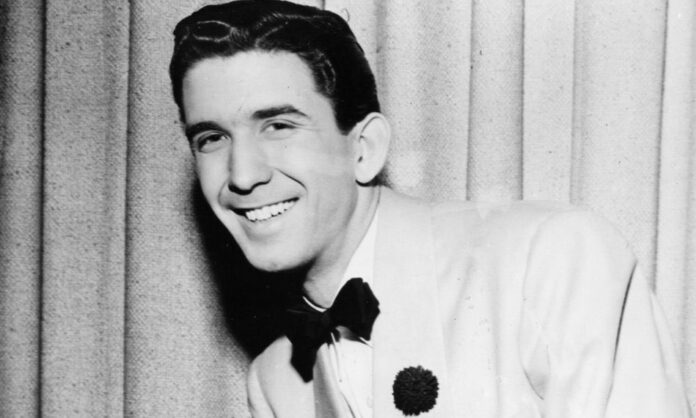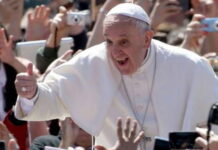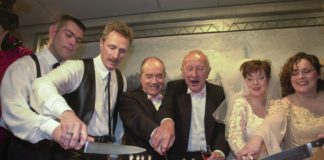
It’s a marvel that 1962 jazz record Love is a Drag: For Adult Listeners Only exists. The record, tagged as “sultry stylings by a most unusual vocalist,” features a male crooner singing love songs about other men.
Unlike most pre-Stonewall American queer music, there was no cheek or camp to the music. From the start, its creators set out to make a genuine album for the underground gay audience.
Remarkable as it is, if it weren’t for a classic Hollywood photographer, a queer archivist, and a radio show, the story behind this incredible record may never have been preserved.
Premier archivist J.D. Doyle played the record on his “Queer Music Heritage” radio show for years before being contacted virtually out-of-the-blue by photographer Murray Garrett in 2012. The record had no artist credits, other than the cover photo and back liner accredited to his design studio, “Garrett-Howard Inc.” The latter half of that name was revealed to be Gene Howard, Murray’s studio partner–and the record’s anonymous vocalist.
Howard was apparently straight, as were Garrett and the studio musicians who collaborated on the album. Despite that, when a friend of Garrett and Howard’s was attempting to get his new record label off the ground, Garrett had no problem suggesting they create a record for the mostly untapped gay market.
Though the record was released to little fanfare, it saw underground play and acclaim in the more concentrated queer hubs in New York and LA. It was reportedly acclaimed by Liberace as his favorite LP of the time and personally lauded by Frank Sinatra. Shirley MacLaine allegedly once used the record as a litmus test to find out which of her party guests were “squares.”
Those who heard the record (and were open to such material) were enthralled by the clear, smooth vocals putting old standards into a new, intriguing context. Songs like Meet Me in St. Louis‘ “The Boy Next Door” found themselves with an unfamiliar and modern flair, all without a hint of contrition from the straight performer.
The performers were allegedly kept anonymous to build mystery and were to be announced once the record reached commercial success. Unfortunately, that further commercial success was never seen, and the fledgling label behind it shuttered its doors. Howard passed in 1993, decades before Doyle and Garrett would finally make him known as the stunning voice behind this piece of queer music history.
Hear Gene Howard’s “most unusual vocals” on lovely jazz standard “The Boy Next Door”:








